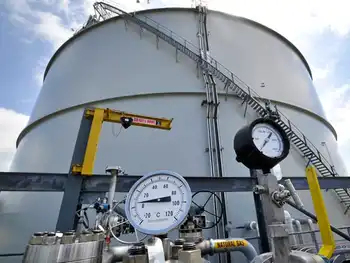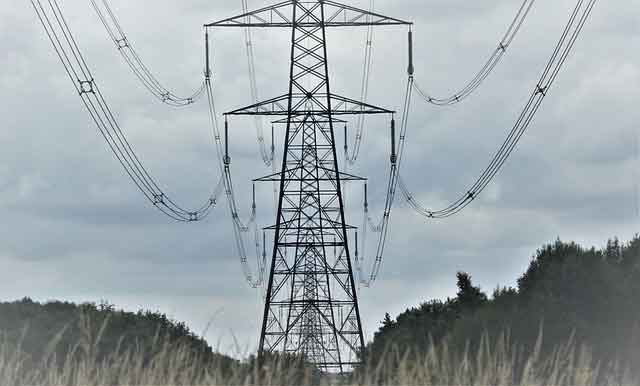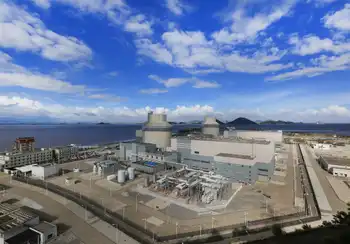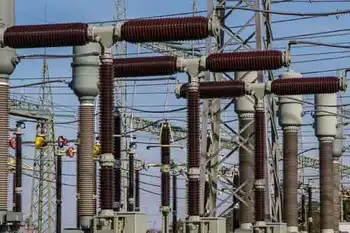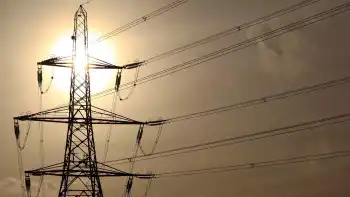British Columbia Fuels Up for the Future with $900 Million Hydrogen Project
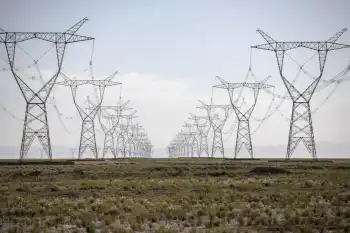
Substation Relay Protection Training
Our customized live online or in‑person group training can be delivered to your staff at your location.

- Live Online
- 12 hours Instructor-led
- Group Training Available
H2 Gateway Hydrogen Network accelerates clean energy in B.C., building electrolysis plants and hydrogen fueling stations for zero-emission vehicles, heavy-duty trucks, and long-haul transit, supporting decarbonization, green hydrogen supply, and infrastructure investment.
Key Points
A $900M B.C. initiative by HTEC to build electrolysis plants and 20 hydrogen fueling stations for zero-emission transport.
✅ $900M project with HTEC, CIB, and B.C. government
✅ 3 electrolysis plants plus byproduct liquefaction in North Vancouver
✅ Up to 20 stations; 14 for heavy-duty vehicles in B.C. and Alberta
British Columbia is taking a significant step towards a cleaner future with a brand new $900 million project. This initiative, spearheaded by hydrogen company HTEC and supported by the CIB in B.C. and the B.C. government, aims to establish a comprehensive hydrogen network across the province. This network will encompass both hydrogen production plants and fueling stations, marking a major leap in developing hydrogen infrastructure in B.C.
The project, dubbed "H2 Gateway," boasts several key components. At its core lies the construction of three brand new electrolysis hydrogen production plants. These facilities will be strategically located in Burnaby, Nanaimo, and Prince George, ensuring a wide distribution of hydrogen fuel. An additional facility in North Vancouver will focus on liquefying byproduct hydrogen, maximizing resource efficiency.
The most visible aspect of H2 Gateway will undoubtedly be the network of hydrogen fueling stations. The project envisions up to 20 stations spread across British Columbia and Alberta, complementing the province's Electric Highway build-out, with 18 being situated within B.C. itself. This extensive network will significantly enhance the accessibility of hydrogen fuel, making it a more viable option for motorists. Notably, 14 of these stations will be designed to handle heavy-duty vehicles, catering to the transportation sector's clean energy needs.
The economic and environmental benefits of H2 Gateway are undeniable. The project is expected to generate nearly 300 jobs, aligning with recent grid job creation efforts, providing a much-needed boost to the B.C. economy. More importantly, the widespread adoption of hydrogen fuel promises significant reductions in greenhouse gas emissions. Hydrogen-powered vehicles produce zero tailpipe emissions, making them a crucial tool in combating climate change.
British Columbia's investment in hydrogen infrastructure aligns with a global trend. As countries strive to achieve ambitious climate goals, hydrogen is increasingly viewed as a promising clean energy source. Hydrogen fuel cells offer several advantages over traditional electric vehicles, and while B.C. leads the country in going electric, they boast longer driving ranges and shorter refueling times, making them particularly attractive for long-distance travel and heavy-duty applications.
While H2 Gateway represents a significant step forward, challenges remain. The production of clean hydrogen, often achieved through electrolysis using renewable energy sources, faces power supply challenges and requires substantial initial investment. Additionally, the number of hydrogen-powered vehicles on the road is still relatively low.
However, projects like H2 Gateway are crucial in overcoming these hurdles. By creating a robust hydrogen infrastructure, B.C. is sending a strong signal to the industry and, alongside BC Hydro's EV charging expansion across southern B.C., is building a comprehensive clean transportation network. This investment will not only benefit the environment but also incentivize the development and adoption of hydrogen-powered vehicles. As the technology matures and production costs decrease, hydrogen fuel has the potential to revolutionize transportation and play a key role in a sustainable future.
The road ahead for hydrogen may not be entirely smooth, but British Columbia's commitment to H2 Gateway demonstrates a clear vision. By investing in clean energy infrastructure, the province is not only positioning itself as a leader in the fight against climate change, with Canada and B.C. investing in green energy solutions to accelerate progress, but also paving the way for a more sustainable transportation landscape.






